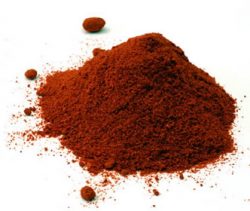The Chinese have known about medicinal green tea benefits since ancient times, using it to treat everything from headaches to depression. I originally didn't like green tea very much but it has certainly grown on me. The big reason that Green tea is really good for you is because they are really … [Read more...] about Green Tea Benefits for Health
Herbal Remedies
Cayenne – 3 Great Reasons To Have It Everyday
Is it possible that one of the most powerful, health inspiring substances in the world could already have a home in your kitchen’s spice rack? It’s true that most folks have a bottle of cayenne right in their own home without even realizing the health benefits they could be receiving if they only … [Read more...] about Cayenne – 3 Great Reasons To Have It Everyday
Brewing Up Some Turmeric Tea
I have heard and read a lot in the past about Turmeric Tea and there are some good and some bad experiences that I have had with it. First of all, why Turmeric Tea? Well my family is all a bit nervous about cooking with Turmeric roots which is a bit strange but at the same time when you see fresh … [Read more...] about Brewing Up Some Turmeric Tea
An introduction to Aromatherapy
Aromatherapy has become a standard alternative medicine that many people use and believe to work. I know very little about Aromatherapy except for the simple fact that in the shower I find that the different smells of our different soaps make me react differently emotionally. Aromatherapy is very … [Read more...] about An introduction to Aromatherapy
The best fast is a Juice fast
If you have ever had the chance to experience a juice fast, you know how invigorating it can be. You feel a renewed sense of vitality entering your life, bringing fresh energy into the body. If you haven't experienced a juice fast or have never tried a fast, this is probably not the image of fasting … [Read more...] about The best fast is a Juice fast




